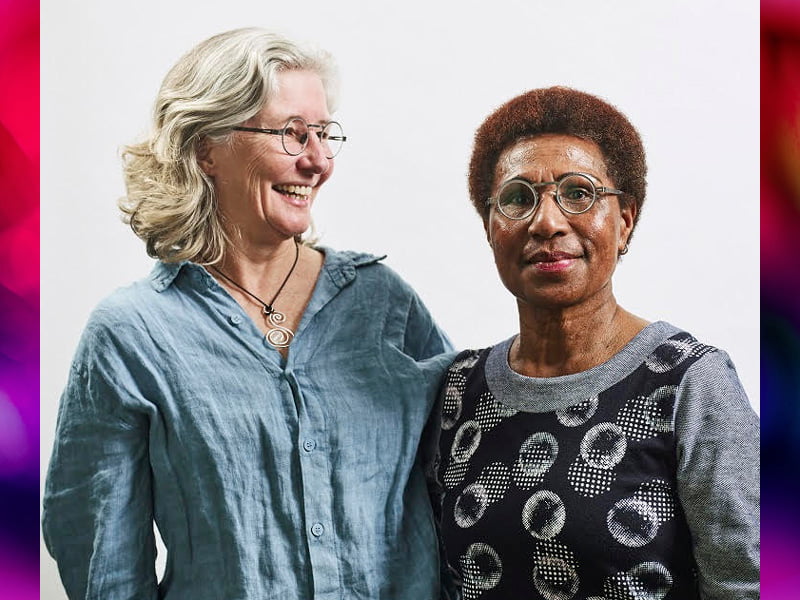Imagine seeing the world clearly for the first time. Better still, imagine looking into the faces of family and friends and really seeing them for the first time without blurred vision.
“It’s such a buzz. The smile on people’s faces when they put the glasses on – and they can see for the first time – it’s just unbelievable,” says 4eyesVision chief executive officer Sarah Crowe.
“It’s like seeing a newborn baby for the first time. People start to cry, laugh uncontrollably. It’s amazing. It just transforms lives.”
That’s the joyous feeling Dr Crowe – an ophthalmologist, Rhodes Scholar, inventor and founder – gets every time she gives sight to people who haven’t had access to affordable glasses. This is especially the case for people in remote and developing communities.
“It’s so impactful, and not just for the person themselves, but for their family, their community. You can work, you can drive. It improves your health.”
Against that backdrop, Sydney-based 4eyesVision aims to eliminate the widespread problem of uncorrected refractive error (URE), which refers to blurred vision and can be improved with glasses.
4eyesVision is a finalist in the InnovationAus Awards for Excellence in the Digital Health and HealthTech category. The winners will be announced at a black-tie gala event at The Cutaway at Barangaroo in Sydney in November 17. You can reserve your seat here.

“WHO estimates the annual economic burden of this problem to be US$427 billion. Improving vision with glasses leads to higher levels of education and employment, resulting in better economic and psychosocial well-being,” Crowe explains.
Dr Crowe says the development of a comprehensive kit, which contains everything a layperson needs to test vision and dispense custom, affordable glasses on the spot addresses the barriers to obtaining glasses.
The kit includes a mobile app that provides training and instruction, simplified digital vision testing, the ability to record and audit vision data, dispensing instructions, inventory management and digital payment.
Mission becomes clear
Dr Crowe has pilot projects in Papua New Guinea and is planning more trials in remote Indigenous communities, in PNG, Timor Leste, and India.
In Papua New Guinea, 4eyesVision has teamed up with The Kokoda Track Foundation (KTF) to dispense over 1,000 pairs of glasses to people in the Kokoda and Gorari catchment regions.
Certainly, Dr Crowe’s early history prepared her for this humanitarian mission. It just took a while to come into focus.
“I worked in Africa after medical school and that’s what I always wanted to do, to work in developing communities. But the way life worked out, I had four kids and it was a busy life, so I worked in private practice. My husband worked in academic surgery – and he’d go off and do these great teaching trips to developing countries and I felt very jealous.”
But her time would come. Once free from the family pressures, Dr Crowe joined her husband in the Solomon Islands to help with his surgery, and set up eye clinics.
While conducting outreach clinics in the Solomon Islands and PNG, she became aware of the huge global burden of URE.
“I was working in these eye clinics with very few resources. There was no medicine, no surgery. There was nothing you could do, but scores of people were coming into the clinic, and many of them could have had their vision improved with glasses. Even though it wasn’t perfect, it would have made a big difference.”
With few resources – no ability to travel to neighboring islands – residents were left with few options. The only option was to wear donated second-hand glasses; a situation Crowe says is a proven waste of money.
Barriers to healthy eyecare
There are a host of limitations deterring people from accessing good vision care.
“Refraction, which means testing for lens power for the glasses, is a professional skill that hasn’t changed in over 100 years. And it’s unnecessarily complicated. But I turned that on its head, and invented an instrument that’s really simple and intuitive with step-by-step instructions.
The mobile 4eyes testing device kit, which is made up of a patented wheel, and a supply of frame and lens strengths, provides eye testing and dispenses on the spot glasses to hospitals, clinics, schools, community groups and individuals.
“One of our portable kits services 200 people, delivering an eye test and glasses dispensed in 25 minutes.”
It’s the difference between good health and well-being (best possible vision) – or continual blurred vision caused by poor focus – even vision impairment.
“Improved vision by providing glasses previously unattainable – improved education, employability, economic success and psychosocial well-being” – for Dr Crowe, that’s the best measure of success.
Do you know more? Contact James Riley via Email.
